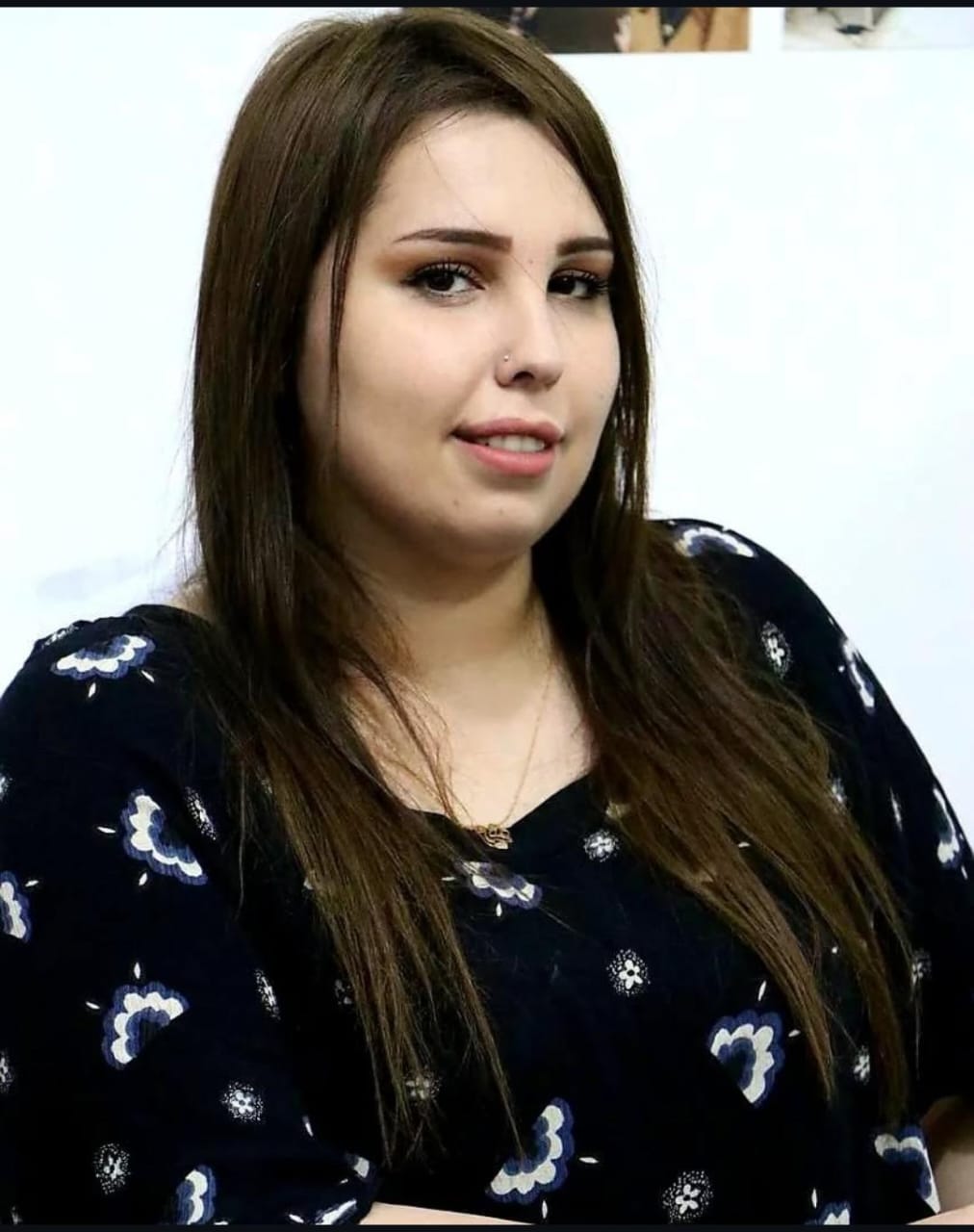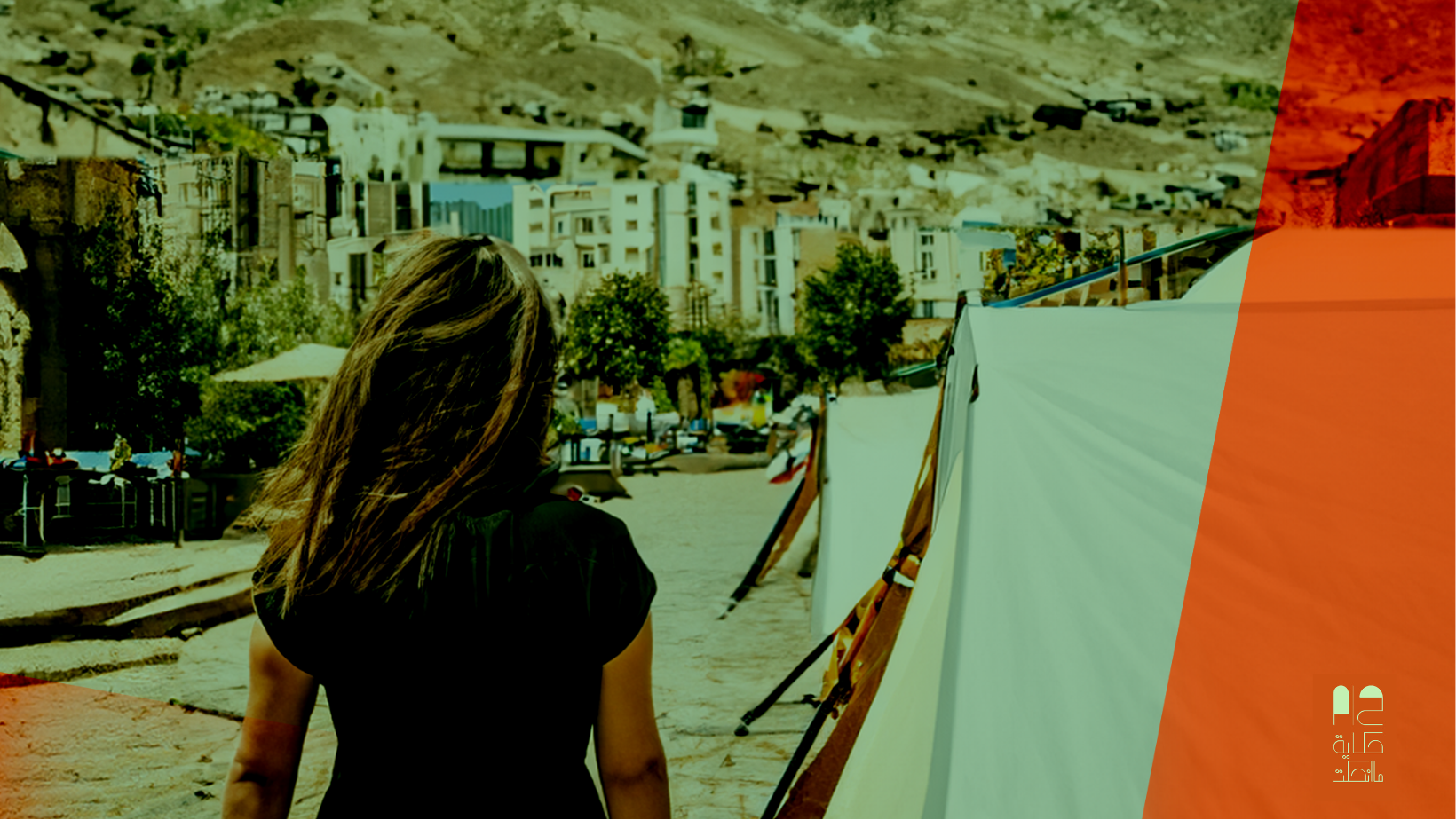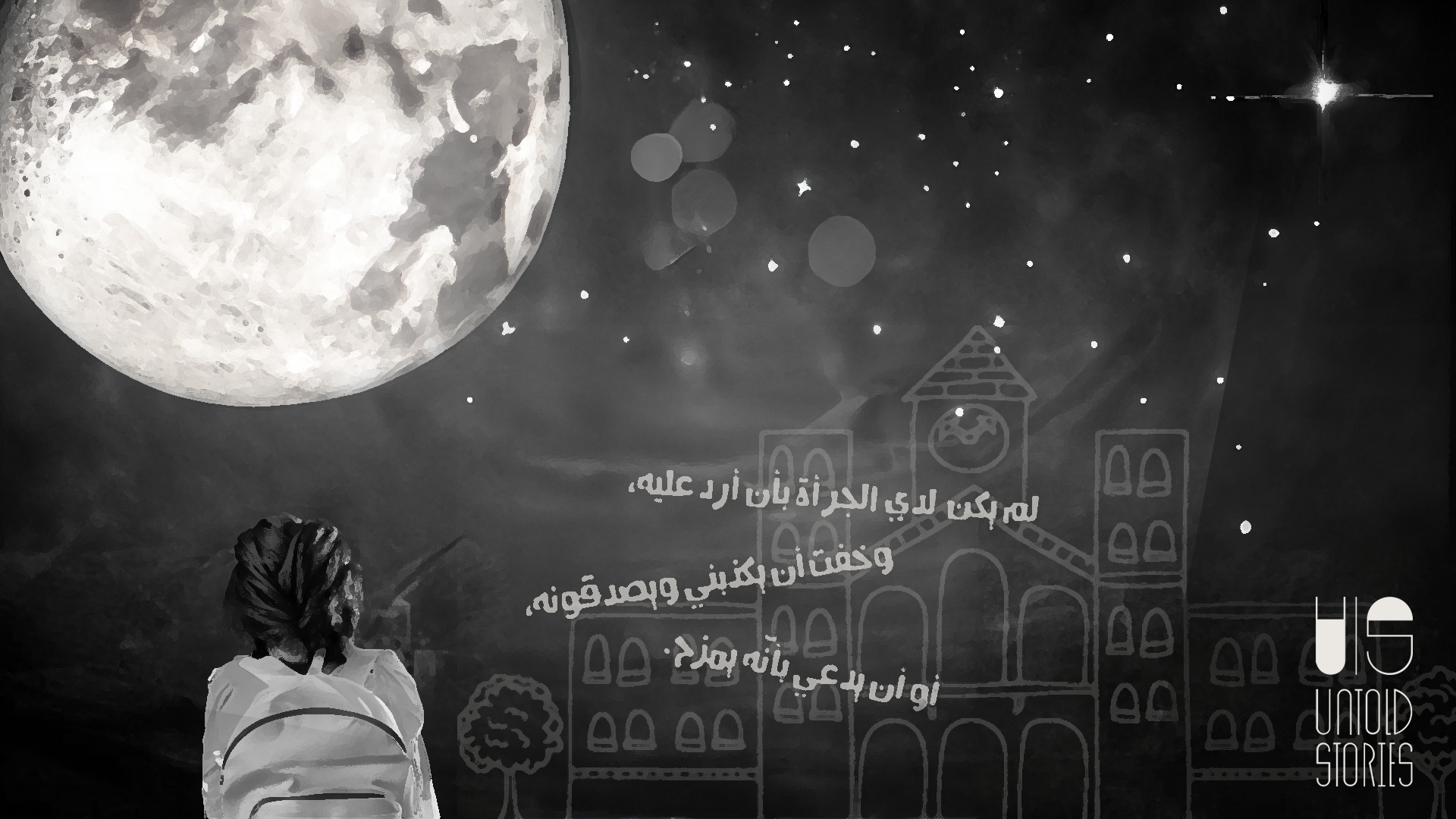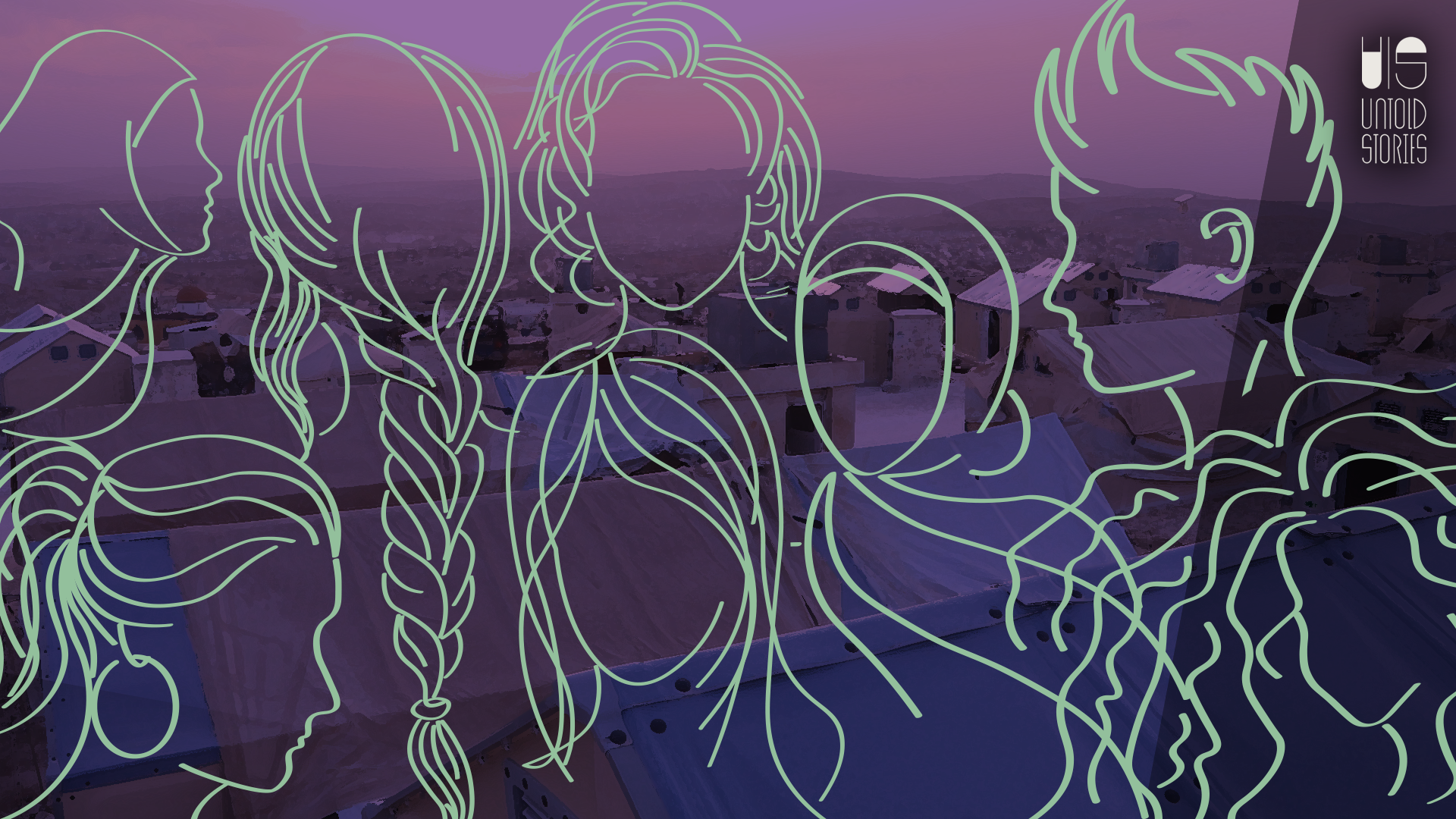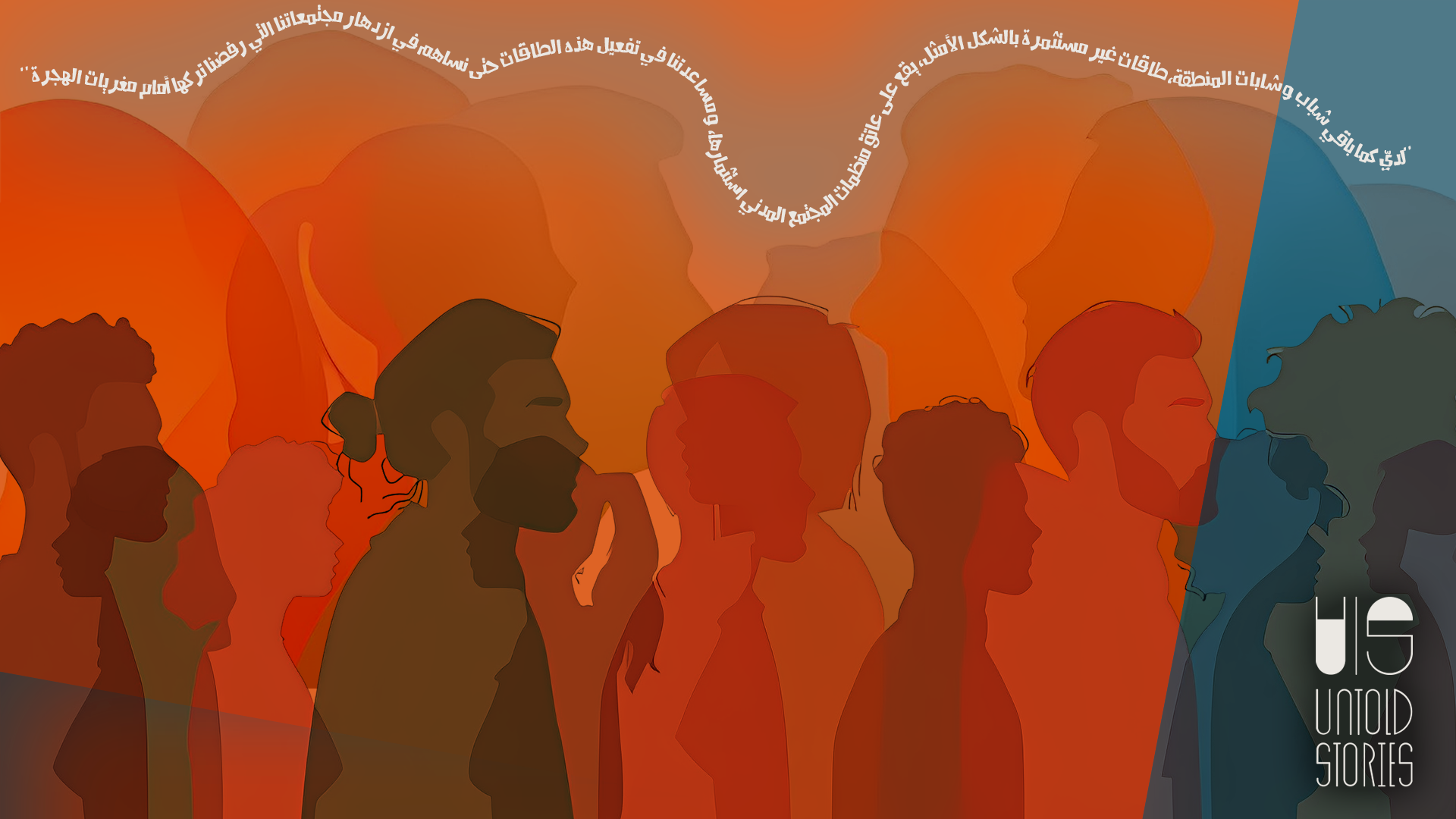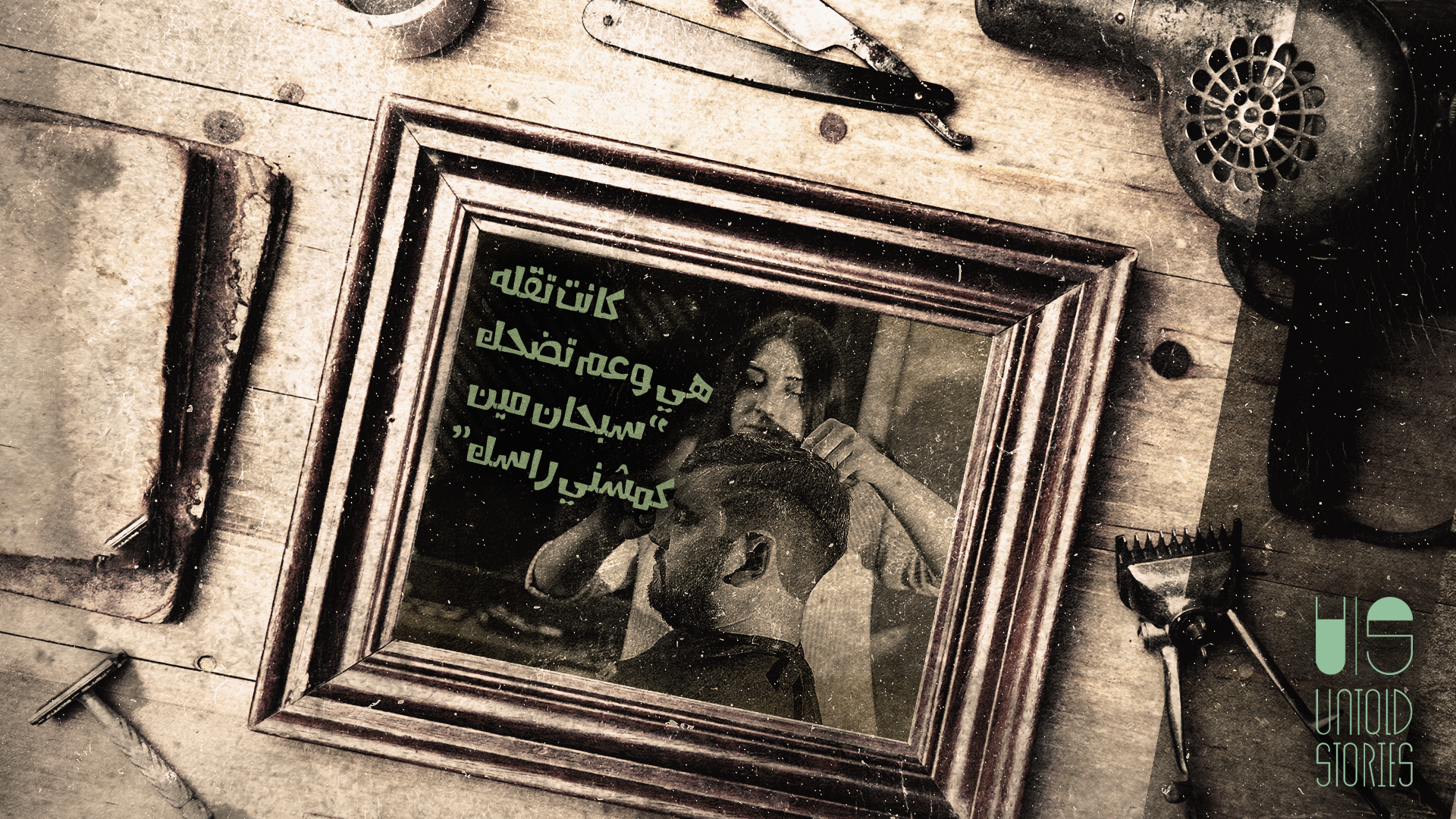“This article was produced within the project «Empowering the Next Generation of Syrian Women Journalists» in partnership between the «Syrian Female Journalists Network» and «UntoldStories». This article was produced under the supervision of journalist Maisa Salih.”
"Following a decision made by my mother, I was denied the opportunity to complete my education, marking my first encounter with violence."
With this sentence, Lamia (a pseudonym) begins narrating her story, choosing this alias to conceal her real name out of fear of her social environment. The forty-year-old displaced woman lives with one of her children in the countryside of Qamishli in northeastern Syria. She is striving to remove the traces left by a long journey of violence and gender-based discrimination, a journey that consumed a significant part of her life.
Lamia lived with her family in Kuwait until she completed her primary education. The family returned to Syria after the Iraqi invasion of Kuwait in 1990. They began reorganizing their legal documents, including sending the children back to school. This marked the beginning of Lamia's struggle when her mother vehemently opposed her return to education, justifying her unequivocal refusal with the statement, "Every girl ends in her husband's home," implying no need for education. However, her stance was entirely different when it came to her sons, encouraging them to complete their education.
"I still remember the mistreatment, being forced to perform all household tasks without any regard for my repeated objections or a kind word, at the very least," says Lamia. She adds that her childish desire to play with her friends and refusal to perform household chores subjected her to repeated abuse by her elder brother.
Lamia was deprived of her right to enjoy childhood freely. For example, she was violently prevented from making dolls—a common activity for young girls in her area. Her mother would tear apart every doll Lamia made in her childhood to ensure she didn't get distracted from performing household tasks.
Feminist activist Ruba Ghanem attributes the violence against women to "gender imbalances in power dynamics" emphasizing that recognizing this violence exposes incidents rooting in gender bias and misogyny, often normalized as normal behavior.
Ghanem underlines that women, like men, can commit acts of violence against other women, whether within the family, at work, or elsewhere. “Such behavior can be considered a natural response to the environment shaped by male dominance and the masculine characteristics defining women’s lives in both public and private spheres.”
Various Forms of Violence Against Women, Rooted in One Source
Lamia remained trapped in household chores. During that time, despite her young age, many young men proposed to her, yet her family rejected them because she was still a minor.
On her eighteenth birthday, after returning home from her agriculture work, Lamia discovered her father and uncle counting money for her dowry. She was taken aback, as no one had informed her about what was happening.
"I indirectly asked my mother about what my uncles and father were up to, and whether their presence was related to buying land or a car. I knew it deep down, but I wanted to confirm it. I didn't dare to directly address the topic or object to the way I was being married. My mother answered: "Your father married you to your cousin."
After the marriage, Lamia experienced a new kind of violence. She says she suffered a lot. "I didn't have an understanding and educated husband; instead, he constantly abused me. He was harsh and forced me to do all the household chores without the slightest consideration for any circumstances I might be going through, even if I were sick. Taking a break was never an option for me."
Gender-based violence, especially violence against women and girls, is one of the most common human rights violations worldwide. This form of violence transcends social, economic, or national boundaries.
Lamia lived in an area governed by traditions and customs that control women's lives. These factors prevent them from making any decisions regarding their public and private lives. Ending an unsuccessful marriage, especially with a relative, is the last option that Lamia, or any woman in her environment, can consider. Her first pregnancy added certainty that separation became an unattainable dream.
"I believe that civil initiatives centered on awareness in cities have emerged as a result of the consolidation of political centralization in Syria. Therefore, there is a prevailing notion among cultural elites and individuals engaged in public affairs that civil efforts should exclusively focus on urban areas," says the writer and journalist Abbas Moussa. He points out that quotas - so to speak - should be allocated to rural areas in various issues, including this one.
The United Nations Population Fund defines gender-based violence, especially violence against women and girls, as one of the most common human rights violations worldwide. This form of violence transcends social, economic, or national boundaries, with global estimates indicating that one in three women will experience physical or sexual violence during her lifetime. Gender-based violence undermines the health, dignity, security, and independence of its victims, yet it remains shrouded in a culture of silence.
"I informed my mother that I wanted a divorce, but she warned me that a painful beating awaited me from my father if he found out. She offered no support and became the source of the heavy burden I bore throughout my twenties," she reveals. However, Lamia adds that her father's second wife backed her decision. She could influence her husband more than Lamia's mother ever could. After successfully persuading her father, she entered the court for the first time to initiate divorce proceedings, and it happened.
Women Confronting Violence on One Front and Social Stigmatization on Another
Lamia reveals that her mother grew up as an orphan and was raised by her grandmother and uncles. When she got married, she faced continuous abuse from her husband. So, when Lamia was born, her mother treated her the same way she was treated after own marriage. Most women from the region where Lamia and her mother lived experience daily violence and discrimination. They are deprived of education and married off early due to tribal customs and traditions prevalent in the area, according to Lamia.
After the divorce, Lamia found herself alone, facing the challenges of life and securing essential necessities for her child. Her mother repeatedly refused to provide Lamia with money for purchasing medicine, clothing, or other necessities for her child. So, Lamia decided to rely on herself. Since she didn't have an academic certificate, her only option was to work in agriculture as a means to achieve economic independence. She would start her day with the sunrise and return home at sunset, yet household chores awaited her upon her return.
Lamia became the sole provider for her child, and as time passed, she realized the need for a partner. She married someone of her own choosing, only to discover after marriage that her choice was entirely wrong. She paid the price for that decision, committing to silence and refraining from revealing any mistreatment she endured from her husband. During her marriage, she gave birth to two children and experienced physical abuse, abuse, abandonment, and repeated miscarriages. It ended abruptly with her husband divorcing her without any reason, Lamia says.
"Although divorce was my choice in the first marriage, I faced it again in an arbitrary manner. Nevertheless, the price I paid for this decision was substantial, carrying a social stigma and enduring suspicious looks and disdain from my social surroundings, especially from other women," says Lamia. She explains that she endured it for the sake of continuing with life. She grew tired of the depression and sadness that had accompanied her since the beginning of her life. All she wished for was a happy life free from problems and sorrow.
The Need for Comprehensive Measures to End Violence Against Women
Lamia has faced and continues to confront several challenges. She lives with one of her children, who is eight years old, while her family has cut off communication with her, showing lack of interest in her well-being. This forces her to confront significant difficulties in securing daily life necessities.
"I have an ambition to settle down, attain economic independence, buy a house, and transform it into the haven of security I have always lacked."
Feminist activist Ruba Ghanem believes that combating violence against women is the collective responsibility of various actors and institutions. They should coordinate to bridge gender gaps and implement all necessary measures to protect women's rights. This includes ratifying international agreements related to violence against women and compelling countries to undertake necessary actions to combat it. There should be a national and comprehensive law against violence, considering it a crime punishable by deterrent penalties. Administrative and judicial procedures should be reformed to ensure that women have access to authorities and courts to report any type of violence.
Ruba emphasizes the need for quantitative studies addressing violence in all its forms. These studies should yield accurate statistics and documented data about violence incidents, including their geography, types, perpetrators' identities, and the number of women surviving them, and other data that helps us determine the reality of violence. “These statistics must be accessible to the public, especially academics, politicians, and civil society organizations. Qualitative studies are equally vital to provide a comprehensive understanding of the dynamics of violence against women, offering narrative evidence through documenting women's personal experiences with violence.”
Journalist Abbas Moussa underscores the necessity for gender justice through awareness, identifying schools as crucial vehicles for instilling these values. Incorporating these values into school curricula and activities is essential to instill these values in future generations. Moreover, society needs awareness of the importance of these issues through activities provided by civil organizations and cultural spaces that allow expression of various ideas, thereby expanding the circle of influence.
Lamia turned to an association that offers services for women, where she resides. She learned sewing and began learning how to use a computer. She says that she is on her way to achieving financial independence. “I feel that I still have enough time to develop myself and acquire new skills. Being over forty years old means nothing to me, as I have ample energy to learn many professions.”


